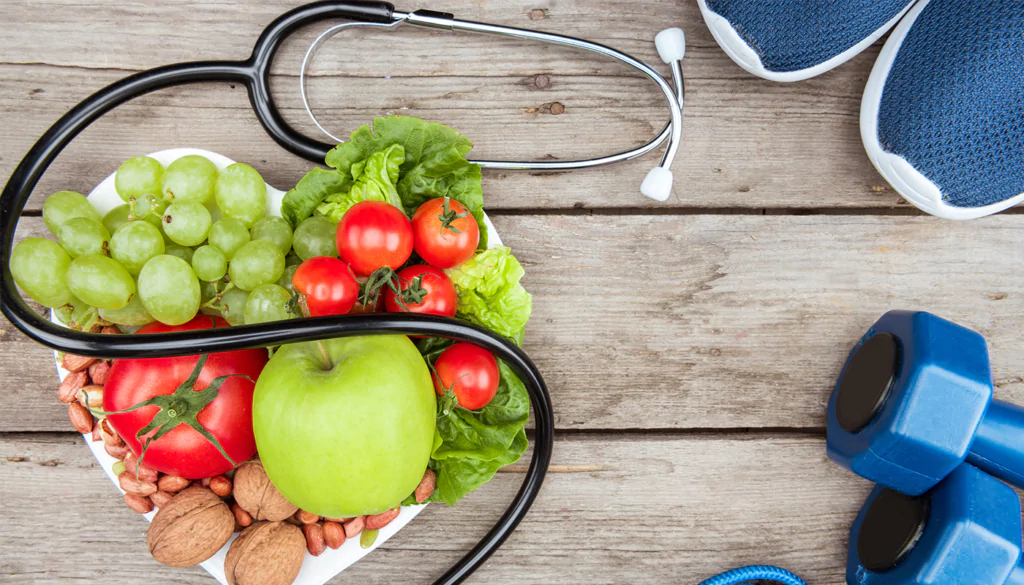Beyond Food and Diet: The Role of First Aid in Achieving Optimal Health and Nutrition

In our pursuit of a healthy lifestyle, we often focus on nourishing our bodies with nutritious food and engaging in regular physical activity. However, it’s essential to acknowledge that accidents and medical emergencies can still occur, regardless of our best intentions. That’s where first aid training becomes a crucial component of maintaining well-being.
In this blog, we will delve into the profound importance of first aid in the realm of health nutrition. By understanding the significance of immediate care and equipping ourselves with life-saving skills, we can be prepared to face emergencies head-on and potentially save lives.
Recognising Common Emergencies in Health Nutrition
While health nutrition primarily revolves around preventing illnesses and promoting well-being, it’s vital to be aware of potential emergencies that can arise. By recognising these emergencies and taking swift action, we can mitigate further harm and provide timely assistance. Some common emergencies in the context of health nutrition include:
- Choking: A choking incident can occur when a piece of food or an object blocks the airway, making it difficult to breathe. By knowing how to perform the Heimlich Maneuver or abdominal thrusts, one can dislodge the obstruction and restore normal breathing. It’s worth noting that while it can be a life-saving technique, it is essential to receive proper first aid training and certification to perform it correctly and safely.
- Basic Wound Care: Learning how to clean, disinfect, and dress wounds properly can minimise the risk of infection and promote faster healing. Understanding different types of wounds and their appropriate management is essential in maintaining overall health.
- Food Poisoning: Consuming contaminated food can lead to food poisoning, resulting in symptoms like nausea, vomiting, abdominal pain and diarrhea. Promptly understanding the signs, ensuring adequate hydration and seeking medical attention if necessary are crucial steps in managing food poisoning emergencies. First aid education prepares you to quickly access an emergency situation and prepares you for a quick response during such situations.
- Burns: Mishaps in the kitchen during food preparation or otherwise sometimes cause minimal burns but, if not paid heed to, can cause more harm. Knowing how to provide immediate care for burns, such as putting the affected area under cool water, can help alleviate pain and prevent further damage.
- Allergic Reactions: They can range from mild to severe, with symptoms like itching, hives, swelling, difficulty breathing and anaphylaxis. Understanding the signs of an allergic reaction and being able to administer epinephrine using an auto-injector (if available) can be life-saving.
- Diabetic Emergencies: Individuals with diabetes may experience emergencies like hypoglycemia (low blood sugar) or hyperglycemia (high blood sugar). Recognising the symptoms, providing sugar sources in the case of hypoglycemia, or seeking immediate medical help for hyperglycemia is crucial.
Importance of First Aid Training and Certification
- Life-Saving Skills: First aid and CPR training equip you with the knowledge and skills to respond effectively in emergencies. Whether it’s providing immediate care for choking, cardiac arrest, or other critical situations, these skills can save lives. In health and nutrition contexts, where accidents or medical emergencies can still occur, knowing how to act swiftly and appropriately can significantly affect the outcome.
- Professional Opportunities: Obtaining an accredited first aid and CPR certification can open doors to various professional opportunities in the health and nutrition field. Many organisations, fitness centres, schools, and community programs require individuals with these certifications to ensure their clients’ or participants’ safety and well-being. Having these credentials can enhance your employability and broaden your career prospects.
- Preparedness for Personal and Family Safety: Learning first aid and CPR extends beyond professional applications. It also prepares you to respond effectively to emergencies within your family and personal life. Accidents can happen anywhere, and being equipped with the necessary skills can give you peace of mind, knowing that you can provide immediate care and support to your loved ones if the need arises.
First aid training is an invaluable asset in the field of health nutrition. Equipping yourself with the necessary skills can make a significant difference in responding to emergencies promptly and effectively. By taking the time to learn CPR, the Heimlich maneuver, basic wound care, and how to handle allergic reactions, you can enhance your ability to provide immediate assistance in critical situations. Remember, being prepared can save lives and promote a safer and healthier community.




